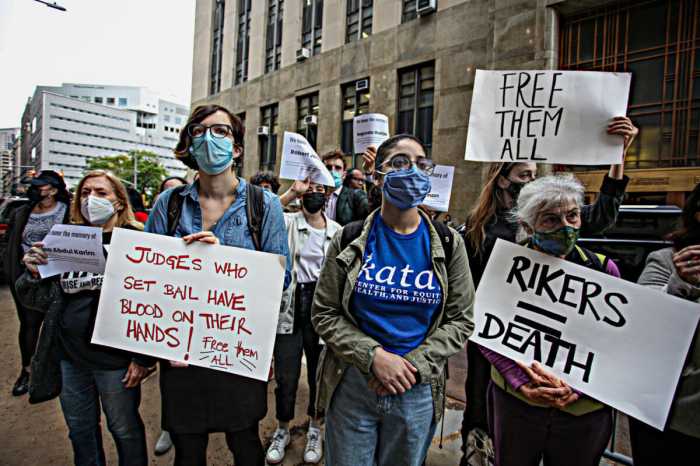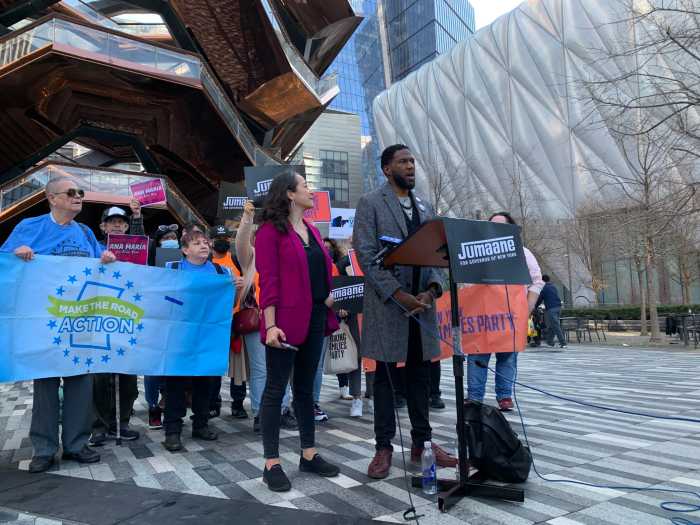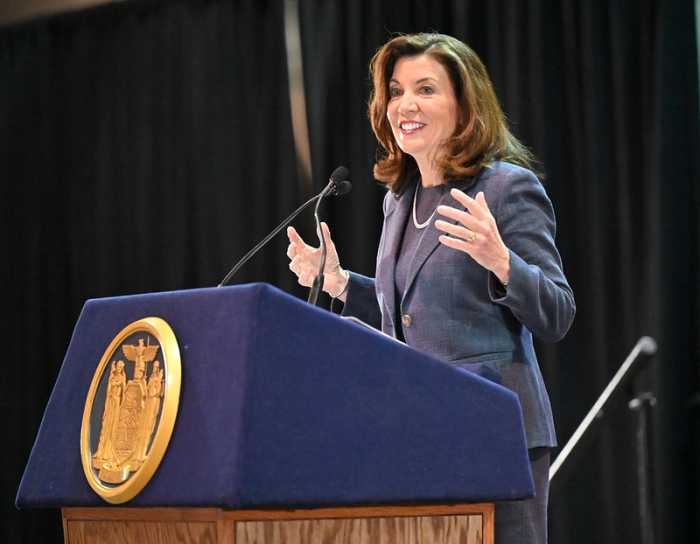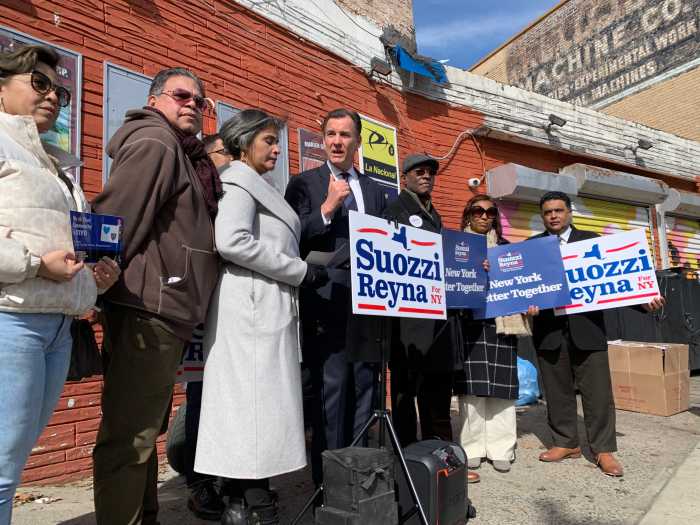In the only debate before the Nov. 8 election for governor, Democratic Governor Kathy Hochul and GOP Rep. Lee Zeldin clashed over issues ranging from combating crime to the results of the 2020 presidential election on Tuesday night.
The candidates took the stage at Pace University’s Schimmel Theater in lower Manhattan Tuesday for a debate moderated by Spectrum NY1 Anchors Errol Lewis and Susan Arbetter. The two squared off for the first and last time before the election in two weeks, as several public polls have shown Zeldin – who represents much of Suffolk County – closing what once was a considerable gap between himself and Hochul.
While Zeldin and Hochul had heated exchanges on a variety of issues throughout the evening, the one that kept coming up again and again was tackling high crime across the state.
Zeldin, who has made bringing down New York’s surging crime numbers the centerpiece of his campaign, cast Hochul as being asleep at the wheel on the issue because she’s refused to fully rollback 2019 reforms to the state’s bail laws, which he’s blamed for partially fueling the current crime wave. Additionally, Zeldin dinged his opponent for not removing Manhattan District Attorney Alvin Bragg after declining to prosecute several low-level offenses.
“Now Kathy Hochul supports cashless bail. As soon as it got implemented, she was out there bragging about it,” Zeldin said. “This is about all of us together: Republicans, Democrats, independents as New Yorkers to make sure our streets are safe again, to make sure our subways are safe again. This is our opportunity two weeks from tonight.”
Hochul hit back that her administration has taken several measures to tackle crime since she took office last year following the resignation of her predecessor Andrew Cuomo over nearly a dozen several harassment allegations. For instance, the governor said, she held up this year’s state budget for over a week in order to make several rollbacks to the 2019 bail reforms, giving judges more discretion to set bail in cases involving repeat offenders and guns.
“You can either work on keeping people scared or you can focus on keeping them safe,” Hochul said. “I did focus on bail reform in our budget. That’s why the budget was nine days late, because I insisted on common sense changes. We did make those changes to our bail laws so we can have repeat offenders and people with gun offenses treated as they were under the previous law. That got done because I made it get done.”
Additionally, the governor highlighted several gun control measures she signed into law following a mass shooting in a Buffalo super market earlier this year, which included a ban on those under the age of 21 from purchasing assault weapons. And she touted working with governors from other states to crack down on gun trafficking operations responsible for the flow of illegal guns into the state.
Hochul also slammed Zeldin for opposing gun control measures in Congress like an assault weapons ban, saying “there is no crime fighting plan, if it doesn’t include guns.”
Even while talking up her record on crime, Hochul continuously tried to draw attention back to Zeldin’s vote against certifying the 2020 Presidential Election results for President Joe Biden on Jan. 6 2021, just hours after a mob of former President Donald Trump’s supporters stormed Capitol Hill in hopes of overturning the election by force. In particular, Hochul pointed to text messages Zeldin sent before the election was called for Biden in November 2020, offering ideas on how to undermine a Biden victory.
“The fact that he sent text messages to the Chief of Staff of the White House to lay out the strategy on how to subvert public opinion and try to carve it into this idea that there’s a big lie out there, I think that’s deeply troubling,” Hochul said.
But Zeldin defended his vote, saying he went against certifying the election in Pennsylvania and Arizona because he believed election officials in those states unlawfully intervened and overruled their state legislatures.
“The United States Constitution says that state legislatures set the administration of election law and that was the question I articulated then, it’s the question I’ll articulate now,” he said. “It’s about looking forwards, not backwards. Election integrity should always matter.”
Dozens of courts around the country have found that there was no widespread voter fraud in the 2020 election, while Trump and many of his Republican allies have continued to insist there was.
The two also traded barbs over their respective plans for the state’s economic recovery, stances on abortion rights and ideas for handling the over 21,000 migrants migrants who’ve inundated New York City since the spring.
Early voting begins Saturday Oct. 29 and runs through Sunday Nov. 6.









